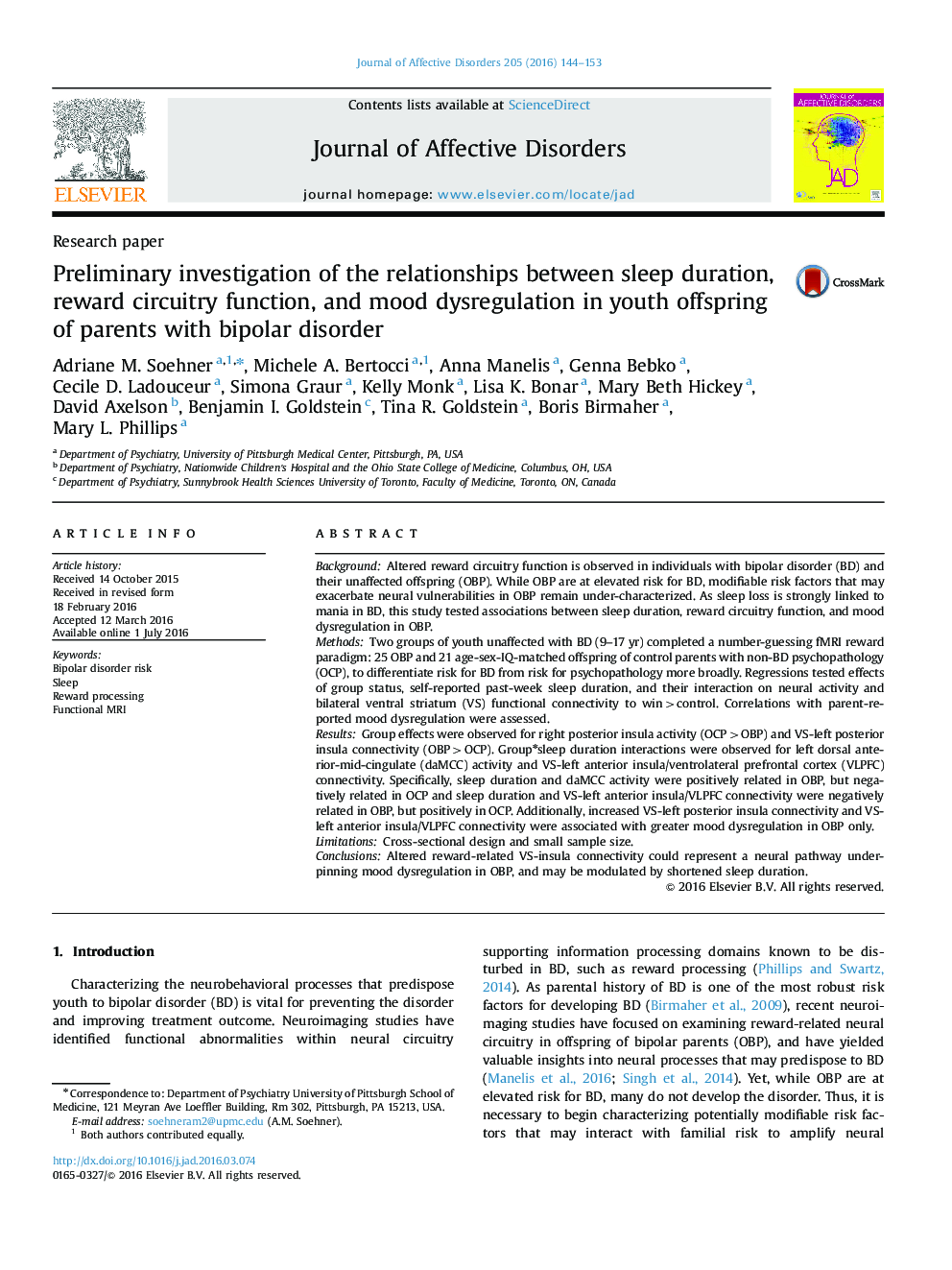| کد مقاله | کد نشریه | سال انتشار | مقاله انگلیسی | نسخه تمام متن |
|---|---|---|---|---|
| 6229671 | 1608120 | 2016 | 10 صفحه PDF | دانلود رایگان |
- Offspring of bipolar parents (OBP) exhibit altered reward circuitry function.
- Sleep duration predicts altered activity and striatal connectivity to wins in OBP.
- Sleep duration is related to mood dysregulation in OBP.
- Striatal connectivity is related to mood dysregulation in OBP.
- Altered striatal connectivity may link sleep loss to mood dysregulation in OBP.
BackgroundAltered reward circuitry function is observed in individuals with bipolar disorder (BD) and their unaffected offspring (OBP). While OBP are at elevated risk for BD, modifiable risk factors that may exacerbate neural vulnerabilities in OBP remain under-characterized. As sleep loss is strongly linked to mania in BD, this study tested associations between sleep duration, reward circuitry function, and mood dysregulation in OBP.MethodsTwo groups of youth unaffected with BD (9-17Â yr) completed a number-guessing fMRI reward paradigm: 25 OBP and 21 age-sex-IQ-matched offspring of control parents with non-BD psychopathology (OCP), to differentiate risk for BD from risk for psychopathology more broadly. Regressions tested effects of group status, self-reported past-week sleep duration, and their interaction on neural activity and bilateral ventral striatum (VS) functional connectivity to win>control. Correlations with parent-reported mood dysregulation were assessed.ResultsGroup effects were observed for right posterior insula activity (OCP>OBP) and VS-left posterior insula connectivity (OBP>OCP). Groupâsleep duration interactions were observed for left dorsal anterior-mid-cingulate (daMCC) activity and VS-left anterior insula/ventrolateral prefrontal cortex (VLPFC) connectivity. Specifically, sleep duration and daMCC activity were positively related in OBP, but negatively related in OCP and sleep duration and VS-left anterior insula/VLPFC connectivity were negatively related in OBP, but positively in OCP. Additionally, increased VS-left posterior insula connectivity and VS-left anterior insula/VLPFC connectivity were associated with greater mood dysregulation in OBP only.LimitationsCross-sectional design and small sample size.ConclusionsAltered reward-related VS-insula connectivity could represent a neural pathway underpinning mood dysregulation in OBP, and may be modulated by shortened sleep duration.
Journal: Journal of Affective Disorders - Volume 205, 15 November 2016, Pages 144-153
